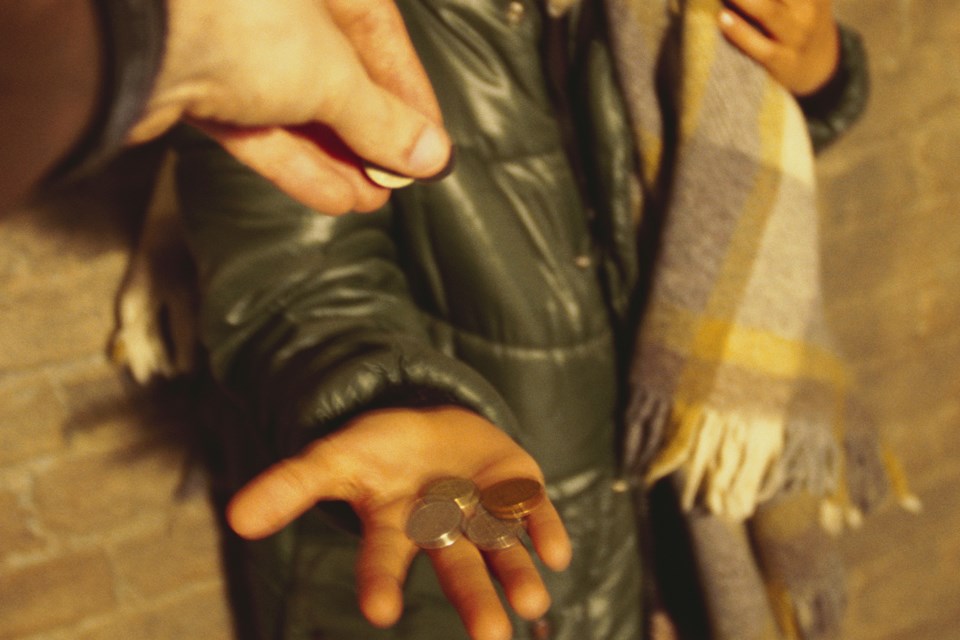OLDS — A bylaw to control panhandling in Olds is a success, although the problem will likely never go away entirely, protective services director Justin Andrew says.
“There's nothing that ever works 100 per cent, but it's certainly better than the alternative, because before the bylaw, there was no opportunity whatsoever for us to do that,” he said during an interview with the Albertan.
Under the bylaw passed in April 2024, panhandling is defined as personal, verbal and direct solicitation by a person of gratuitous donations of money, food or goods of any kind whether by spoken or printed word, or bodily gesture, from any member of the public.
It’s prohibited within Olds’ corporate limits between 8 p.m. and 8 a.m.
The problem is seen to be especially an issue in the Cornerstone development, which features grocery stores and big box stores like Walmart and Canadian Tire.
There’s concern that panhandlers – especially aggressive ones – can deter potential shoppers, thus hurting local businesses and the economy in general.
Penalties for contravening the bylaw range from $500 for a first offence to $1,500 for a third offence.
Enforcement officers can also issue a violation ticket requiring a court appearance or in the case of RCMP, charge in lieu of issuing a municipal violation ticket.
A summary conviction will net violators a fine of not more than $2,500 and not less than $50.
Panhandlers are still at it.
A woman with a sign standing near the Walmart parking lot was asking for money last weekend.
Andrew said generally speaking, panhandlers come from out of town.
“They come in and they collect as much money as they can and then they take off,” he said.
“So the situation is that they are not people that are in serious need of financial assistance. It's almost a secondary means of (income).
“I mean, it's not embezzlement, because they're physically asking people for money, but the story that they're portraying about them needing money is not necessarily true.”
Andrew said the panhandlers tend to have help.
“Typically, what's happening is that they have what they call a spotter,” he said.
“Somebody will be sitting in a vehicle in close proximity and as soon as law enforcement is called, they make a phone call or a text, and the person comes and swoops and picks them up and they take off.”
Andrew said RCMP have been “really good” at policing the problem.
“As soon as they're notified or made aware that there's that occurrence happening, they act on it quickly, and they chase them and they disappear,” he said.
However, Andrew said the problem is not likely to go away any time soon.
“The reality is, is that the prosecution under that legislation is limited because of the people being transient in nature,” he said.
“It's not a huge deterrent, other than if things escalated, it would give them grounds to be detained by the police if they had to.”
Andrew said if anyone spots a panhandler they should tell Olds RCMP “because then they can act on it immediately.”
“A lot of times, what happens is that, if nothing else with these people, they sometimes will be known to police in other jurisdictions for criminal activity,” he said.
“And so by the RCMP being involved, they can conduct their background check on who the person is and see if they have any outstanding warrants.”
Andrew said that’s turned out to be the case for the detachment’s crime reduction specialist.
“He's found that they've been wanted on warrants in other jurisdictions and then was able to arrest them and detain them,” he said. “Not that long ago, that was the case with somebody with warrants in Saskatchewan.
People may feel bad chasing panhandlers away from their businesses, but those people aren’t necessarily as down and out as they suggest.
“The reality is, these people are in $80,000 SUVs, so it's pretty hard to believe that they're really hard up with when they're getting picked up by somebody driving a vehicle like that, and then they scoot off to another town where they live,” Andrew said.
“And they'll get aggressive,” he added. “They don't want you to give them food. They want money.
“And that's a number one telltale. If somebody is truly looking for assistance, they’ll take it in any way they can get it.
“(If they tell you) they don't want your food or your clothes or whatever, they want money, that's the number one red flag for fraudulent activities.”



